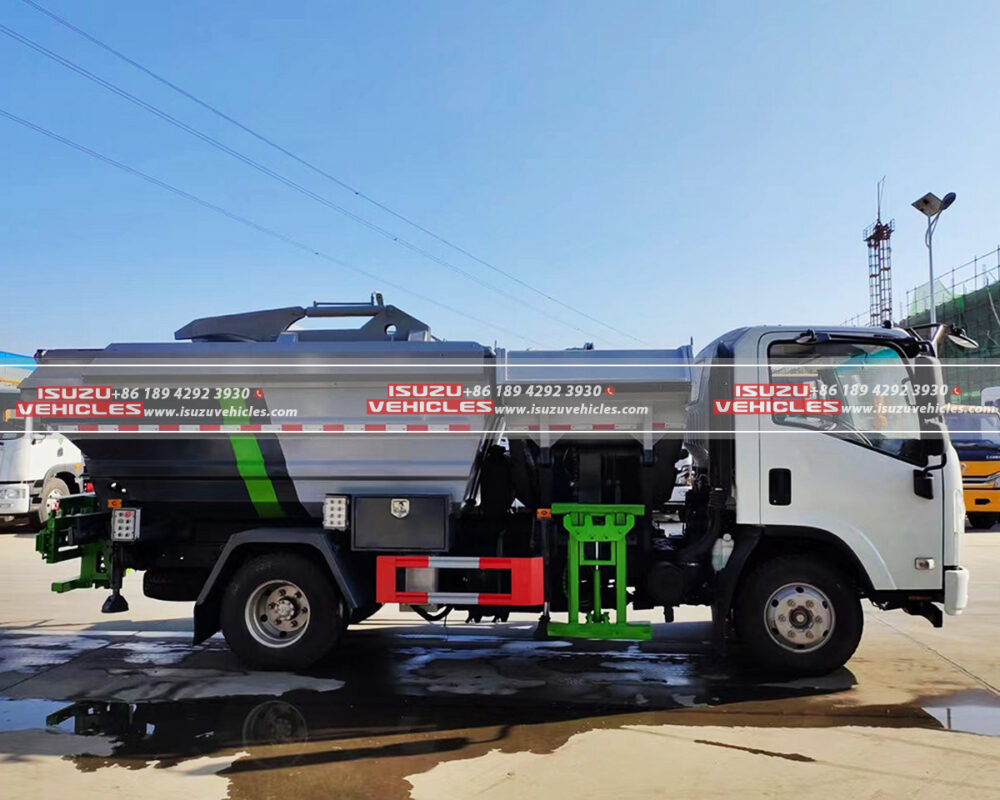In a significant move to bolster its construction and infrastructure development capabilities, Venezuela has recently taken delivery of a fleet of advanced ISUZU dump trucks, designed to support large-scale construction projects across the country. These robust and versatile vehicles, part of ISUZU’s renowned lineup of utility trucks, are set to revolutionize the way construction materials are transported, offering a reliable and efficient solution for enhancing productivity and project timelines.
This delivery marks a pivotal moment in Venezuela’s efforts to modernize its construction sector. With the growing demand for infrastructure development, the introduction of the ISUZU dump trucks is poised to address key challenges, ensuring that construction companies can operate more efficiently and meet project deadlines with confidence.
Part 1: The Role of ISUZU Dump Trucks in Construction
The arrival of the ISUZU dump trucks represents a major upgrade for Venezuela’s construction industry. These vehicles are specifically designed to handle the transportation of heavy materials such as sand, gravel, and debris, making them an indispensable asset for construction projects of all sizes. Unlike standard ISUZU tow trucks, which are primarily used for vehicle recovery, the ISUZU dump trucks are equipped with hydraulic lift systems and reinforced beds that efficiently manage the loading, transportation, and unloading of construction materials.
One of the standout features of the ISUZU dump trucks is their ability to operate in diverse environments, from urban construction sites to remote infrastructure projects. Their robust construction and powerful engines ensure that they can handle heavy loads and challenging terrains, even in adverse weather conditions. Additionally, the trucks are designed with user-friendly controls and safety features, making them easy to operate and maintain.
For construction companies in Venezuela, the introduction of the ISUZU dump trucks is a game-changer. By providing a reliable and efficient way to transport construction materials, these vehicles help improve productivity, reduce operational costs, and support the country’s infrastructure development goals.
Part 2: Addressing Venezuela’s Construction Challenges
Venezuela, like many countries, faces significant challenges in its construction and infrastructure development sector. Limited access to heavy equipment, rugged terrains, and the need to transport large volumes of materials make efficient logistics a critical priority. The introduction of the ISUZU dump trucks is a timely and effective response to these challenges, offering a scalable and sustainable solution for improving construction operations.
The ISUZU dump trucks are particularly well-suited to Venezuela’s diverse construction needs. Their powerful engines and durable chassis ensure that they can operate effectively in both urban and rural environments, providing a seamless transportation experience for construction companies. This is especially important for large-scale infrastructure projects, where the timely delivery of materials is critical to maintaining project timelines.
In addition to their practical design, the ISUZU dump trucks are equipped with advanced safety and operational features, such as hydraulic stabilizers and reinforced beds. These features ensure that operators can manage heavy loads safely and efficiently, reducing the risk of accidents or damage during transportation.
While the ISUZU tow truck is well-known for its role in vehicle recovery, the ISUZU dump truck demonstrates the brand’s commitment to addressing construction logistics needs. By investing in these specialized vehicles, Venezuela is taking a proactive approach to improving its construction infrastructure and supporting its growing economy.
Part 3: Key Features and Benefits of the ISUZU Dump Trucks
The ISUZU dump trucks delivered to Venezuela are not only technologically advanced but also designed with operational efficiency and safety in mind. Below are some of the standout features and the benefits they bring to the country’s construction sector.
1. Hydraulic Lift Systems
The ISUZU dump trucks are equipped with advanced hydraulic lift systems that allow for efficient loading and unloading of construction materials. These systems ensure that materials can be transported and deposited quickly, reducing downtime and improving productivity.
2. Reinforced Beds and Durable Chassis
Built with reinforced beds and a durable chassis, the ISUZU dump trucks are designed to withstand the rigors of daily use in demanding construction environments. Their robust construction ensures that they can handle heavy loads and challenging terrains, providing a reliable solution for construction logistics.
3. User-Friendly Controls and Safety Features
The trucks are equipped with ergonomic controls and advanced safety features, such as hydraulic stabilizers and automatic shut-off systems. These features ensure that operators can manage heavy loads safely and efficiently, reducing the risk of accidents or injuries.
4. Versatility for Diverse Applications
The ISUZU dump trucks are designed to handle a wide range of construction tasks, from transporting sand and gravel to removing debris. This versatility ensures that they can meet the diverse needs of construction companies across Venezuela.
5. Cost-Effective Logistics Solution
By enhancing the efficiency and reliability of material transportation, the ISUZU dump trucks provide a cost-effective solution for construction logistics. This helps companies reduce operational costs and improve overall project efficiency.
The delivery of the ISUZU dump trucks to Venezuela marks a transformative moment in the country’s construction industry. By providing a reliable, efficient, and scalable solution for material transportation, these vehicles address the challenges of logistics, productivity, and safety, ensuring that construction companies can meet project deadlines and support the country’s infrastructure development goals. As the ISUZU dump trucks begin their operations across Venezuela, the benefits of enhanced productivity, reduced operational costs, and improved project efficiency will be felt far and wide, paving the way for a more robust and resilient construction sector.
